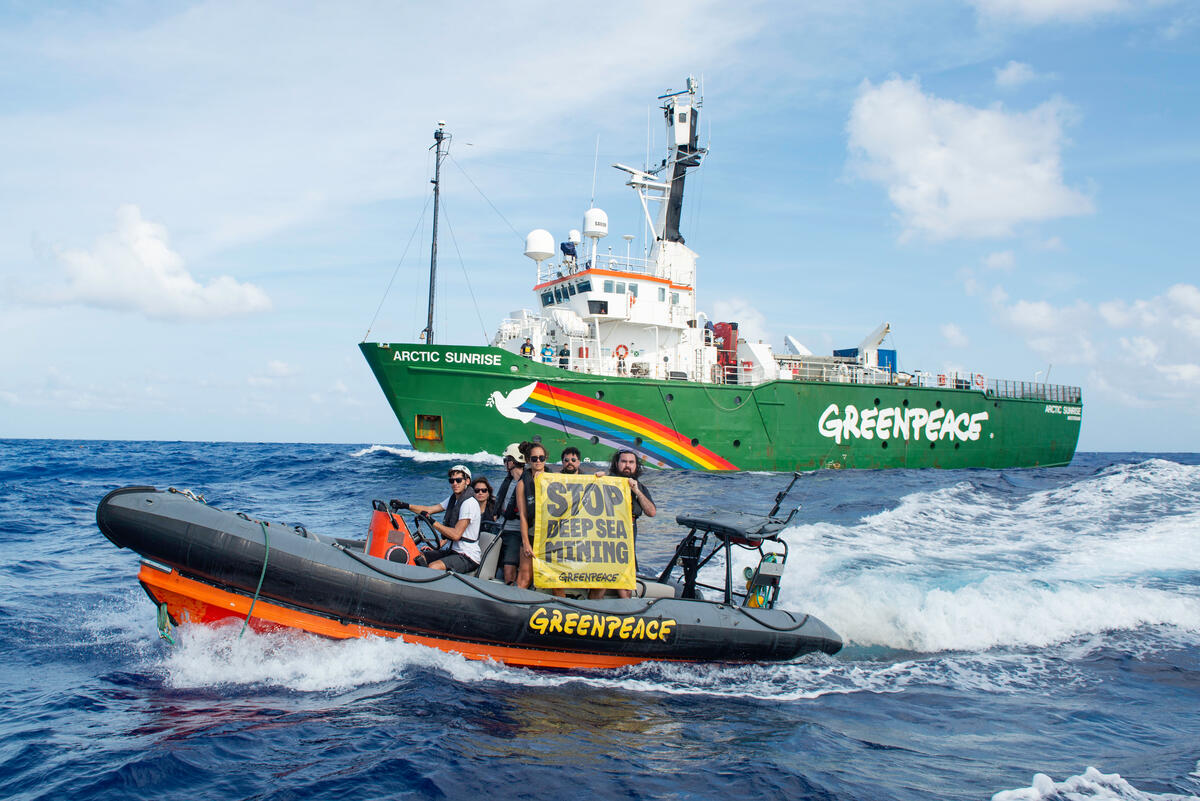
Stop deep sea mining
Deep sea mining is a destructive, extractive industry that is on course to cause irreversible impacts on ecosystems. Why would governments open up a new frontier in the ocean — and who is pushing them to do so?
A destructive industry
The global Greenpeace network is working to prevent a new destructive extractive industry from ever getting started in the oceans. Our position: no deep sea mining, not ever! To achieve that, we are joining Pacific Island communities, champion nations, environmentally concerned companies, and dozens of allied organizations across the globe in calling for a UN moratorium on deep sea mining.
In a planetary emergency, why would governments open up a new frontier for mining in the ocean — and who is pushing them to do so? Greenpeace is working to prevent this potentially catastrophic, extractive industry from ever getting started in the oceans.
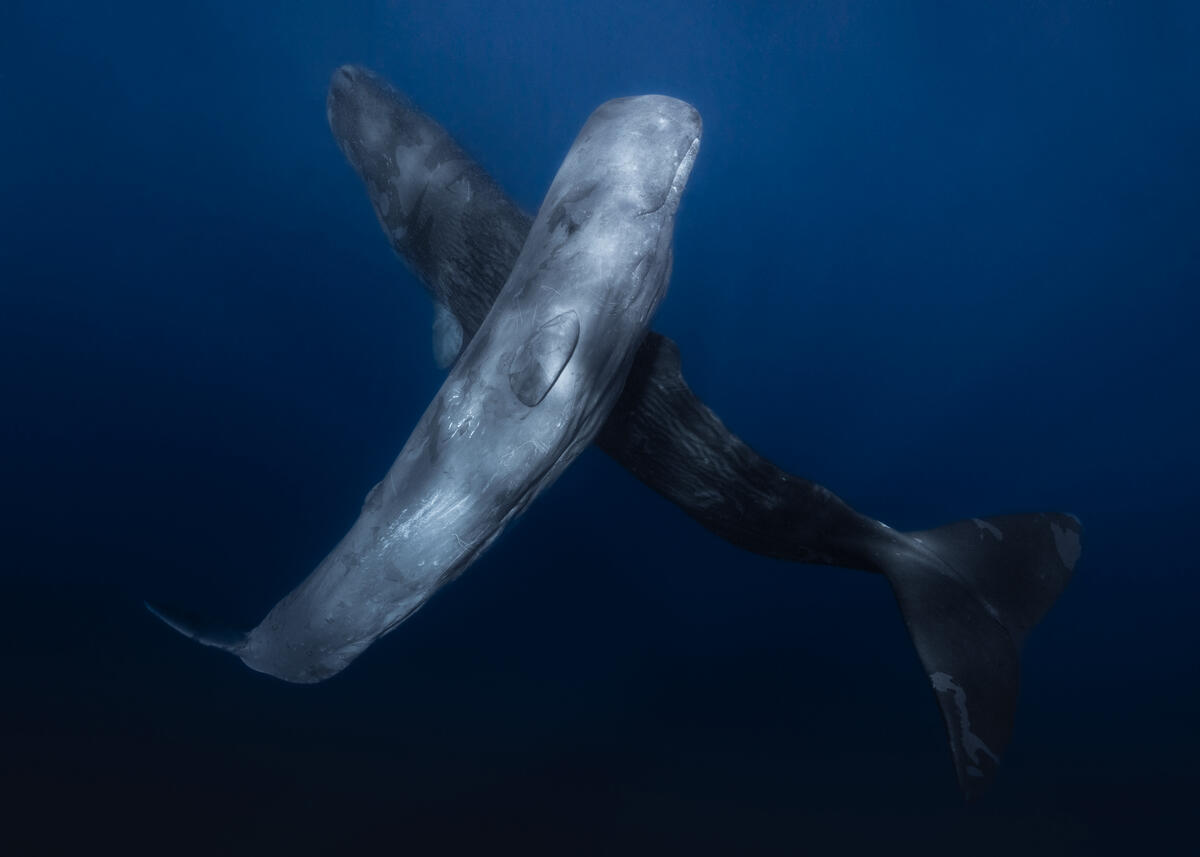
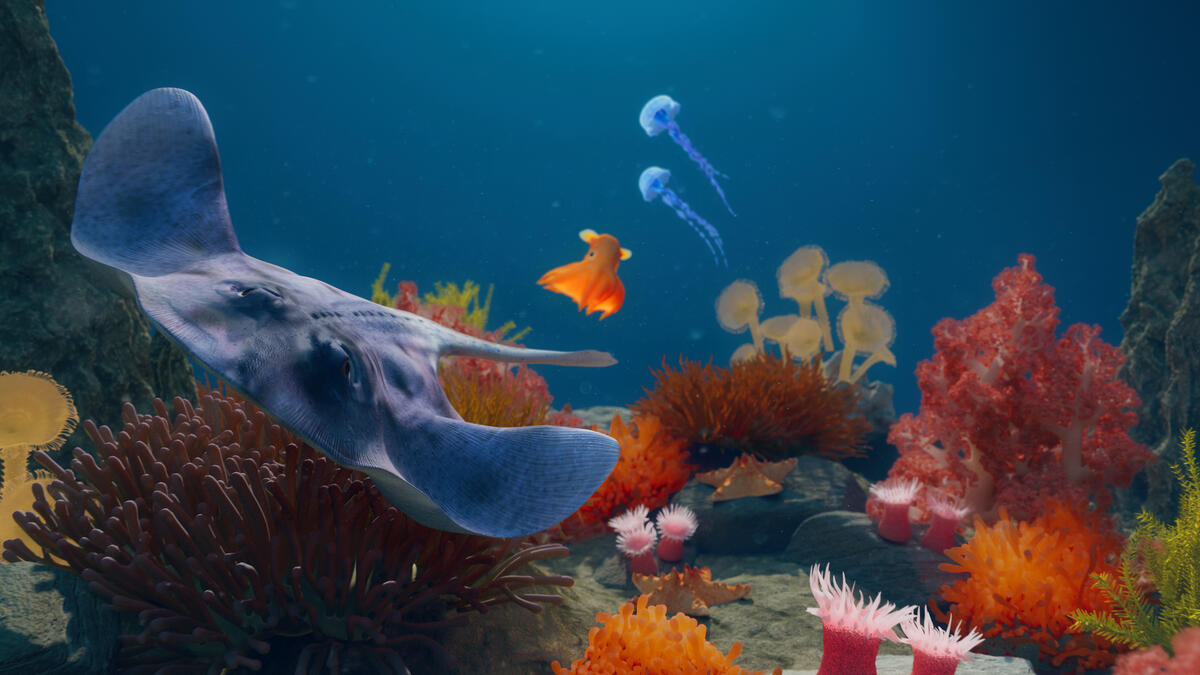
What is Deep Sea Mining?
Deep sea mining is a new, highly-destructive extractive industry that is eager to start in our global oceans. Mining companies like Loke, The Metals Company, GSR, and Deep Green are seeking to profit by launching harmful and controversial mining methods on the planet’s deep seabeds aimed at extracting minerals such as nickel and cobalt from over 400 meters depth into the ocean, and falsely claiming it as a necessary solution for the world’s clean energy transition.
We now face a once in a generation opportunity to stop an industry from gaining a foothold and ravaging one of our last biodiverse boundaries: the precious ecosystems of the ocean’s floor. We can defend this boundary by demanding that government policy makers, forward-thinking clean transportation, and tech companies take a stand.
The creatures of the deep
We know more about the surface of Mars and the moon than about the deep ocean. From underwater mountains providing oases for sea creatures to towering spires resembling sunken cities, the deep ocean is full of mysteries. As the largest habitable space on Earth, the deep ocean is home to ancient coral reefs sustaining the oldest known lifeforms, trenches deep enough to hold Mount Everest, and mysterious animals that can live for hundreds of years. Scientists discover new species on practically every voyage down to the depths.
This unique, living world is under threat from the incipient deep sea mining industry. Deep sea mining risks inevitable, severe, and irreversible environmental damage to our oceans and marine life. Right now, we are at a crucial moment in history. Governments and corporations have been granted licenses to explore for deep sea mining in ecologically sensitive waters, and the industry is positioning its development as essential and inevitable, despite new technological developments that make the minerals they want to mine more obsolete than critical for future electric vehicles and battery needs. But if the industry receives a green light to begin commercial mining we know the floodgates will open to countless companies seeking to profit regardless of the irreversible destruction to the world’s oceans.
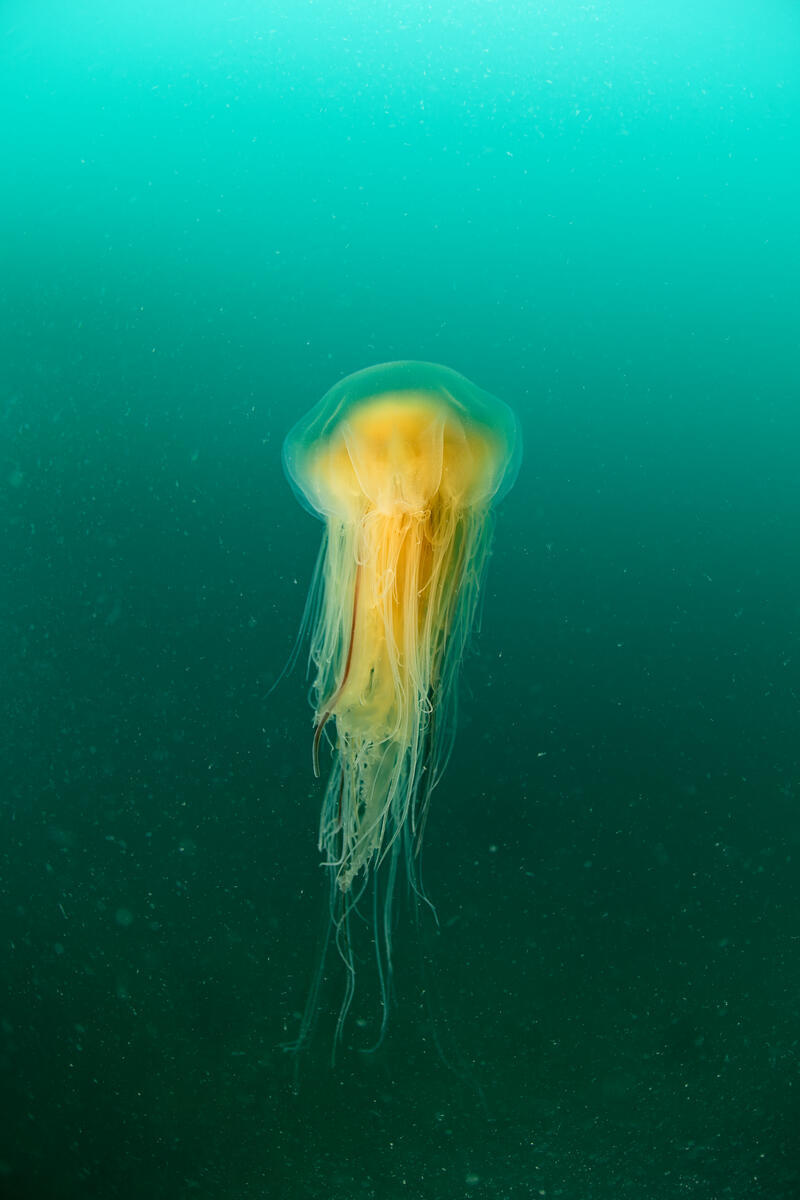
Can we stop deep sea mining?
Although test mining is underway, commercial mining is not yet allowed by international law. However, our window to stop this new, highly destructive industry before it starts is closing fast. In July 2021, the country of Nauru joined with The Metals Company to announce intentions to begin deep sea mining in the near future. The announcement triggered an obscure “2 year rule” in international law, essentially forcing nations to get regulations in place on short-order, to open the new commercial industry. Nations were unable to agree on a mining code within the 2 year window, leaving the door open for mining companies to demand commercial licenses, even without rules and safeguards in place.
If mining begins, industrial-scale mining machines will enter our oceans and destroy unique underwater worlds – affecting not just the weird and wonderful creatures living in the depths, but putting the ocean creatures swimming across our global oceans at risk. The deep ocean is also a critical container for planetary carbon and scientists warn that climate change could be hastened by dredging up these deep sea stores.
How can we stop deep sea mining?
Greenpeace is working on multiple fronts to stop deep sea mining before it ever starts:
Greenpeace is engaging the potential end users of deep sea mining, the automakers, battery companies, and tech corporations that utilize so-called “energy minerals”, which are the primary target of deep sea miners. By gaining commitments to never use deep sea minerals, we aspire to cut off demand for ocean destruction before there ever is a supply. Our transition to a fossil fuel free future must be ethical and sustainable, and not come at the expense of destroying the thresholds within which humanity can survive, develop, and thrive for generations to come. To achieve this, commercial deep sea mining must never begin.
Communities across the Pacific stand on the frontline of deep sea mining. They have the most to lose from operations gone wrong, from damages to abundant fisheries to sedimentation of the beautiful coral reefs that are central to Pacific culture and sustenance, and from climate change impacts that could eventually drive these communities from their ancestral homes. Greenpeace’s global network is working with long-standing Pacific activists who don’t want to see deep sea mining off their shores, or anywhere. These are the frontline heroes in this battle, and our role in the Pacific is to support them.
Through the Protect the Oceans campaign, Greenpeace is working with nations across the globe to forge a new Global Ocean Treaty that would provide a legal framework for biodiversity protections in nearly half of the planet covered by international waters. Our goal is to achieve a network of fully protected ocean sanctuaries that will cover at least 30% of the ocean by 2030. Due to the political power of deep sea mining interests, there is no guarantee this treaty will be granted the authority to put in place protections against this emerging destructive industry, but Greenpeace and our allies are working tirelessly to see that it does.
While no commercial projects are yet permitted in the global ocean, exploratory deep sea mining is licensed by the United Nations through the International Seabed Authority. These operations are destructive and may have irreversible consequences that even deep sea mining companies admit are wholly unknown due to the lack of sufficient science. Greenpeace is meeting these miners at sea, at port, and in the conference rooms of global politics. We are bearing witness to their destructive activities, and members of our global network have taken action to prevent their assaults upon the sea.
Recent victories
A growing wave of voices are speaking out against the looming specter of deep-sea mining. Some are demanding an outright ban, while others are calling for a moratorium unless and until a set of conditions around preventing environmental damage, ensuring good governance, and securing social license, can be met. At Greenpeace USA we believe there is no place for deep sea mining to ever occur in a healthy and well-managed ocean that sustains all life on this planet.
So far, 32 countries have announced their support for a moratorium, a precautionary pause, or a ban on deep-sea mining, along with parliamentarians around the world, Indigenous and civil society groups, major companies, financial institutions, and over 750 science and policy experts from more than 44 countries.
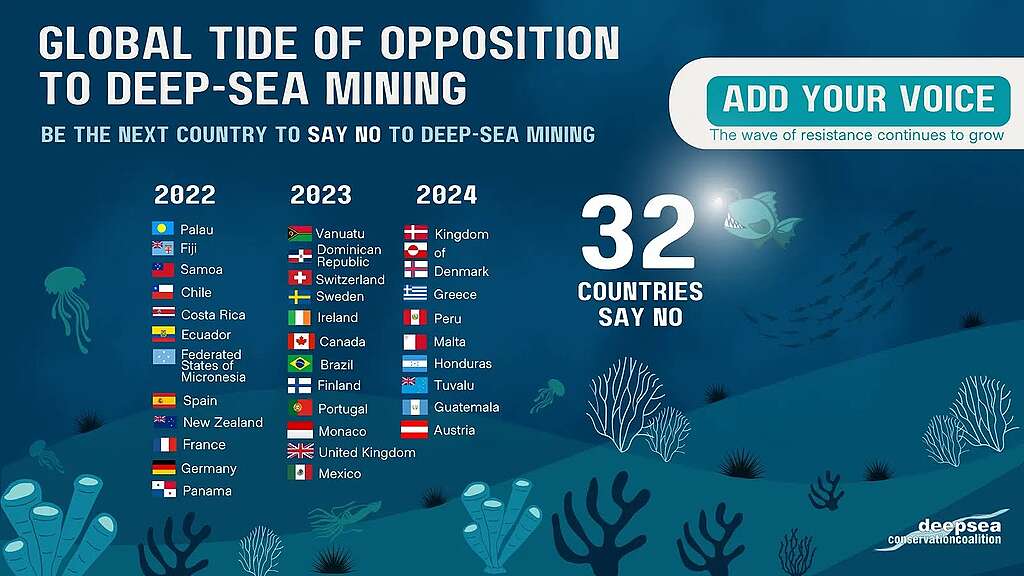
In July 2024, American Samoa joined Hawaii, California, Washington, and Oregon, in establishing their own ban or restrictions on mining in their waters. U.S. House Natural Resources Committee Ranking Member Raúl M. Grijalva (D-Ariz.) and Rep. Ed Case (D-Hawaii), alongside a dozen House Democrats, have urged President Biden to support a moratorium on deep sea mining, stressing the need for robust scientific evaluation before any mining activities proceed. In July 2023, Rep. Case introduced two measures calling for a moratorium on deep seabed mining unless and until its consequences are fully understood and an appropriate protective regulatory regime is established.
What’s our end goal?
We have a unique chance to stop this new ocean threat in its tracks — and we need your help. We must call on our governments to permanently ban deep sea mining in U.S. waters, block our ports and infrastructure from multinational corporations seeking to benefit from ocean destruction, and support a moratorium at the international level to stop commercial deep sea mining operations from launching as early as late 2024 before sufficient science or regulations are in place.
Learn more about…

Protecting workers & wildlife at sea

The Global Oceans Treaty
-

New Analysis of Five Major U.S. LNG Export Projects Finds Every One Fails the “Climate Test”
The new analysis shows that U.S. LNG export projects displace renewable energy and drive up emissions – making them incompatible with a livable climate
-

The ‘Big, Beautiful’ Blunder: a bill that will live in infamy
WASHINGTON, D.C. (July 1, 2025)—In response to the passage of the “Big Beautiful Bill” in the United States Senate, Greenpeace USA Deputy Climate Program Director, John Noël, said: “This is…
-

Wrecking the future: the Trump war on the ocean, climate, and communities
Wrecking the future: The Trump war on the ocean, climate, and communities. Dismantling climate and oceans protections.
-

The high cost of cheap tuna: US supermarkets, sustainability, and human rights at sea (3rd edition)
In Greenpeace USA’s third scorecard measuring the human rights and sustainability practices of 16 major US supermarkets’ tuna supply chains, only two retailers achieved a passing score.
-

The High Cost of Cheap Tuna: US Supermarkets, Sustainability, and Human Rights at Sea
Published: 02-13-2023 Edition: 2nd Download: PDF A net bulging with tuna and bycatch on the Ecuadorean purse seiner ‘Ocean Lady’, which was spotted by Greenpeace in the vicinity of the northern Galapagos Islands while using fishing aggregating devices (FADs). Around 10% of the catch generated by purse seine FAD fisheries is unwanted bycatch and includes…
-

Fake My Catch: The Unreliable Traceability in our Tuna Cans
US seafood company Bumble Bee, one of the leading companies in the canned tuna market with nearly 90% consumer awareness levels, and its Taiwanese parent company Fong Chun Formosa Fishery Company (hereinafter referred to as FCF), one of the top three global tuna traders, play an important role in the global tuna industry, and thus…
-

2021 Tuna Retailer Scorecard: The High Cost of Cheap Tuna
When Greenpeace USA published the first edition of Carting Away the Oceans (CATO) in 2008, not a single company out of the 16 major US retailers ranked on seafood sustainability received a passing score. Most of the companies surveyed had hardly given a thought to sustainable seafood; many had weak or non-existent policies, and commonly…
-

Fact Sheet: The Illegal Fishing and Forced Labor Prevention Act
Illegal, unreported, and unregulated (IUU) fishing, a top threat to ocean ecosystems and global food security, is inextricably linked to human rights abuses at sea. Workers on fishing vessels around…
-

High Stakes: The Impacts of Destructive Fishing
The Indian Ocean is a crucial ecosystem in the race to protect the high seas. From safeguarding marine biodiversity to promoting sustainable, socially responsible fishing, the changes needed to protect…
-

Choppy Waters – Forced Labor and Illegal Fishing in Taiwan’s Distant Water Fisheries
DOWNLOAD THE REPORT Taiwan is one of the world’s largest distant water fishing (DWF) powers, with over 1,100 Taiwanese-flagged vessels fishing across our oceans and hundreds more Taiwanese-owned vessels flagged…
